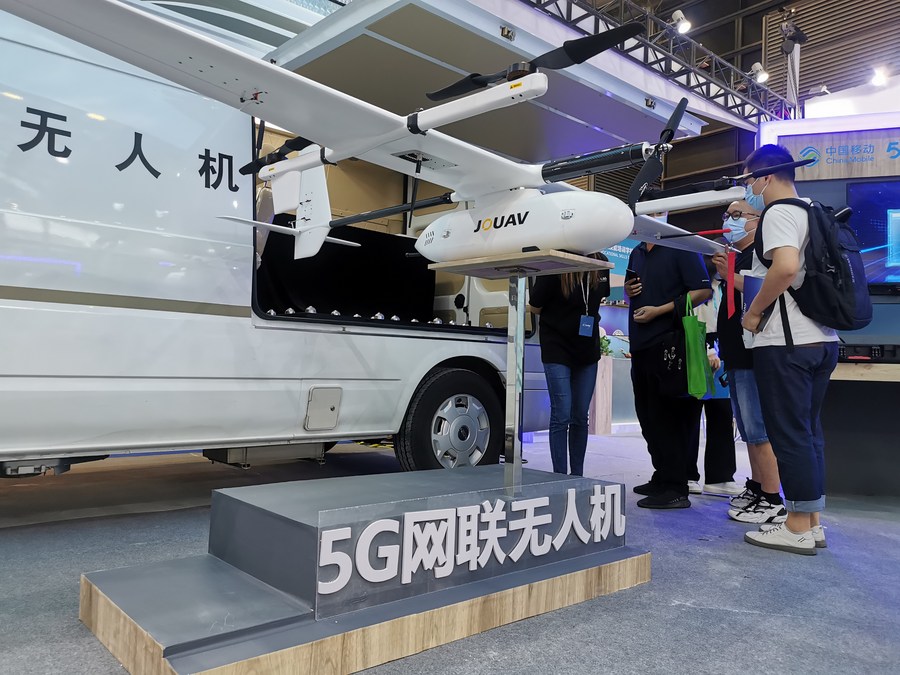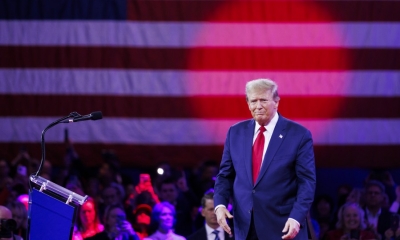Washington’s Economic and Trade War with China Fails

The only rational policy is for Washington to stop its destabilizing and counterproductive policy of confrontation and to start a constructive policy of reengagement and cooperation with Beijing.
Washington’s economic war against China is a failure. A year and a half after Trump, the Biden administration remains stuck in Trump’s reckless and counterproductive China policy.
The Trump trade and tech wars against China caused harm to American exporters, importers, and consumers. The Biden administration should have dropped these policies by now, a year and a half after taking office.
But no. Washington politicians are in deep hysteria over China as a “threat”. The Pentagon has been working overtime preparing for a war against China with the island of Taiwan, an integral part of China, as the flashpoint. Congress is beside itself over the China “threat” and supports the island’s secessionist forces.
On the other hand, China does not support independence for Hawaii nor does it want an economic war with the United States. Logically, China favors a stable and mutually beneficial relationship with the United States on the basis of peaceful coexistence.
While there is some speculation that the Biden administration will alter the holdover Trump trade war policy, there is no clear evidence of that yet. The administration appears to be divided as to the economic dimension of China policy. Some advisors are said to want to moderate the trade war although not the tech war. These advisors are opposed by those who want to continue the Trump trade war.
Such confusion over policy appears to be a hallmark of the Biden presidency. In such circumstances, there should be no expectation of significant improvement in overall US-China relations. The able US ambassador in Beijing may undertake a charm offensive. But this appears to some as just for show in light of the thoroughly hostile attitude of the Biden administration and Congress to China.
As to the Trump tech war against China there seems to be no thought in the Biden administration to drop it. Congress is in the process of spending over $50 billion to encourage chip manufacture in the United States. Should the US develop this capability then Taiwan’s near monopoly of advanced chip manufacture would be broken. Ironically, this would remove one present excuse for the US to go to war over Taiwan.
At the same time, China proceeds full speed ahead on developing its own advanced chip manufacturing industry despite road blocks put up by the US. An undergraduate student in Economics 101 can learn about “import substitution” and thus it is no surprise that not only the US but also China is developing onshore advance chip making industry.

Global economic situation darkens
There are dark clouds over the US economy and the global economy. A logical policy for the US would be to drop the trade war against China and to revitalize bilateral trade and investment so as to avert a worsening situation at home and internationally.
What is the international economic situation today? The global economy is precarious having suffered a number of severe shocks in recent years. The Trump trade and tech war against China also aimed at other countries around the world. Thus, the negative effect of these policies put a weight on overall global growth.
The Covid crisis, a “Black Swan”, further negatively impacted global growth.
Then came the Ukraine crisis this year triggering a massive round of new sanctions against Russia. These sanctions are just beginning to show a blowback effect on the countries that launched them against Russia. On the other hand, Russia has undertaken a logical policy of developing new markets abroad and import substitution at home. An undergraduate student in Economics 101 would have predicted such a policy by Moscow but apparently this was beyond European and US politicians to figure out.
The combined effect of all these negative factors places the current international economic situation in peril. The dark specter of a global slowdown sliding into sharp recession if not depression looms. Already as early as 2018-2019 there were indications of a slowdown in Europe signaling the potential for a global slowdown.
Currently, the Europeans are committing economic suicide with their unhinged sanctions policy against Russia over the Ukraine situation. Inflation is skyrocketing with energy costs being a major factor. Energy availability is increasingly constrained by the sanctions on Russia and there is no short-term solution for Europe say over the next three to five years.
The US encouraged the EU and NATO countries to launch an economic war on Russia using sanctions. Some observers note that this US prodding Europeans to cut their own throats actually weakens Europe to Washington’s advantage. Just look at the current dollar to Euro exchange rate, they say.

Already the inevitable social reaction to the disintegrating European economy is under way. The initial indictor appears in the farmers’ revolt in the Netherlands which now is spilling over into Germany and Italy. Political instability is already seen in the UK, Italy, and France. No doubt, the deepening European economic crisis will accelerate social tension and political uncertainty in Europe.
The European economic crisis will deepen as Germany sinks. The German economy is the key driver of the European economy but its future is not bright particularly given the less than competent leadership it currently has. For example, present data shows a sharp decline in exports coupled with rapidly rising costs for energy. The German export decline may be long term as the international market, particularly in China, weakens for some key categories of German exports such as machine tools. Energy shortages impact a number of key German industries thus threatening a contraction in industrial production and an increase in unemployment.
The United States in crisis
So, what does this mean for the United States? A slowing European economy has spillover effects for the US. These are not only in US-EU trade but also are felt in US-China trade as the China market slows in line with global conditions.
Washington with its trade and tech wars against China negatively impacts China’s economy although China is adjusting to protect itself. It is ironic that Washington targets China with economic warfare while China has been a key engine of growth in the global economy. The US picks up a big stone in order to drop it on its own foot. Not too smart.
The US is in crisis on many fronts such as: increasing poverty, declining middle class, narcotics addiction, public health crisis, deterioration in public education K-12, deterioration in higher education, uncontrolled immigration crisis, breakdown of law and order, and social and political polarization.
With a measurably disintegrating situation at home, politicians in Washington actively point the finger abroad. “Russia” and “China” are to blame, they say.
American politicians do not want to face the fact that US imperial overstretch is the root cause of increasing problems at home. Economic warfare against China will not solve the trend of US decline internally or the relative decline internationally. Nor will the present proxy war against Russia using Ukraine or a potential proxy war against China using Taiwan solve fundamental socio-economic and political problems in the US.
Washington must drop its counterproductive trade and tech wars against China. The present global economic crisis will deepen in the coming months. The only rational policy is for Washington to stop its destabilizing and counterproductive policy of confrontation and to start a constructive policy of reengagement and cooperation with Beijing.
The article reflects the author’s opinions, and not necessarily the views of China Focus.
 Facebook
Facebook
 Twitter
Twitter
 Linkedin
Linkedin
 Google +
Google +







